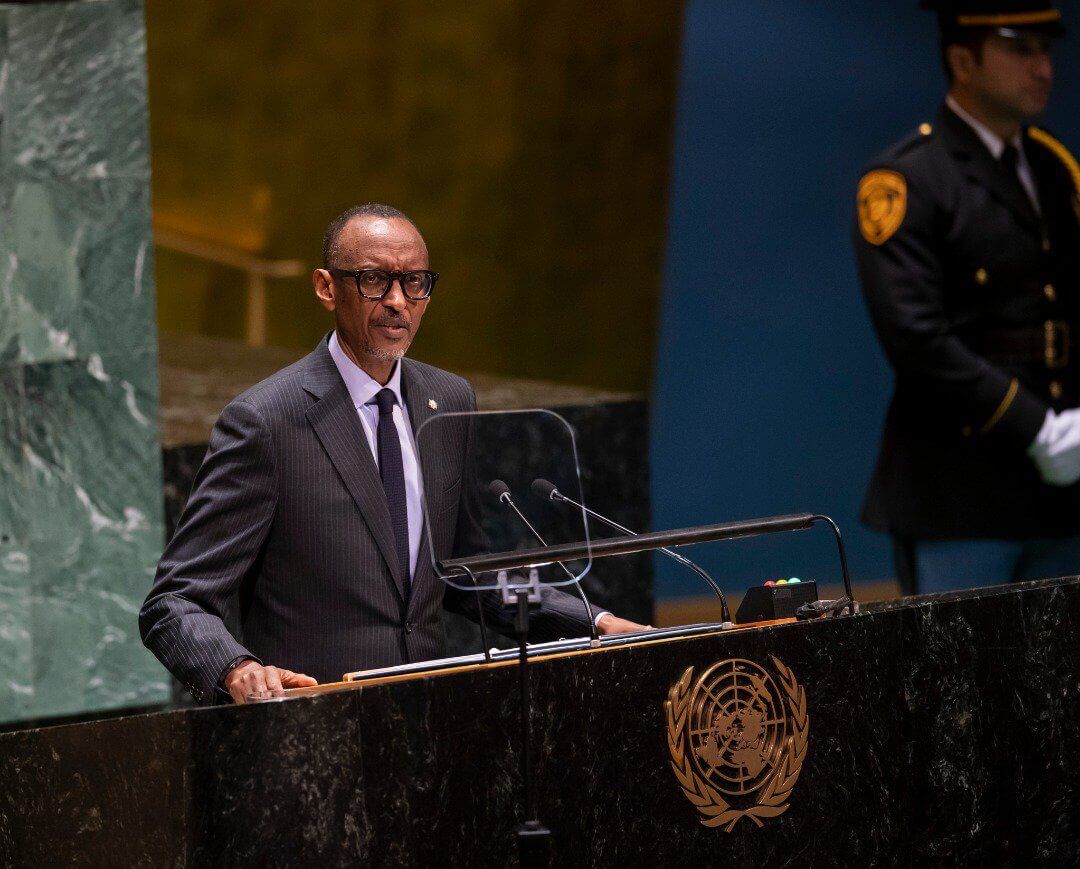Zambia
President Hakainde Hichilema, who was sworn into office in August, addressed the 76th session of the United Nations General Assembly (UNGA) in New York on Tuesday. He said that the conduction of a free and fair election in Zambia has consolidated its reputation as a democratic nation.
Hichilema spoke about how the ongoing pandemic has disturbed trade flows, supply chains, and “various economic activities” across the globe, and increased unemployment, disrupted education, and overwhelmed healthcare systems. He attributed the disruption to the education system in developing countries to “inadequate information, communication, and technology (ICT) facilities.”
Like several of his counterparts from developing nations, the Zambian leader called for vaccine equity, saying that merely 3% of his country’s population has been vaccinated against COVID-19, which means that its target of vaccinating 70% of its eligible population will only be possible by the third quarter of 2022. Hichilema said that the world economy could only be fully opened through “mass vaccination” and thus urged greater support for the African Union’s African Vaccine Acquisition Trust and the World Health Organization-led COVAX initiative, and for technology and information transfer regarding the production of vaccines.
Moving on to the topic of income inequality, Hichilema said his government would bolster investment in the agriculture, mining, energy, financial services, health, tourism, education, and technology sectors and increase support for micro, small, and medium enterprises.
On the global front, the Zambian president noted that greater international cooperation is required to tackle issues like climate change, illegal migration, terrorism, illicit weapons trade, and the abolition of nuclear weapons.
- SUMMARY: DRC President Félix Tshisekedi’s UNGA Address
- SUMMARY: UNGA Addresses by the Leaders of Madagascar, Ghana, Sierra Leone, and Kenya
- SUMMARY: UNGA Addresses by the Leaders of Malawi, Djibouti, Togo, and Guinea-Bissau
- SUMMARY: UNGA Addresses by the Leaders of Brazil, Colombia, and Chile
- SUMMARY: UNGA Addresses by the Leaders of Ecuador, Argentina, Costa Rica, and Peru
- SUMMARY: UNGA Addresses by the Leaders of Venezuela, Guatemala, and Honduras
- SUMMARY: UNGA Addresses by the Leaders of Uruguay, the Dominican Republic, and Suriname
- SUMMARY: UNGA Addresses by the Leaders of China, South Korea, and the Philippines
- SUMMARY: US President Joe Biden’s UNGA Address
- SUMMARY: UNGA Addresses by the Leaders of Iran, Turkey, Qatar, Egypt, and Somalia
- SUMMARY: UNGA Addresses by the Leaders of Saudi Arabia and Jordan
Central African Republic (CAR)
President Faustin-Archange Touadéra began his speech by saying that the ongoing pandemic has underscored the need for a more “tangible form of international diplomacy.”
Given that the CAR’s GDP is expected to contract by up to 9% over the following year, Touadéra announced reforms to the country’s public finance management system in partnership with the International Monetary Fund, which is providing an extended credit facility.
He also called for universal access to COVID-19 vaccines and for greater attention to be placed on the environment by adopting a new governance framework to more sustainably manage valuable resources. Furthermore, the CAR leader reaffirmed his commitment to democracy, building peace and stability, disarmament, demobilisation and reintegration, security sector reform, measures to integrate refugees and internally displaced people, and preserving constitutional order.
Touadéra also used the stage to urge the international community to address historical inequalities and abuses committed against Africa. However, he equally expressed his gratitude to the UN peacekeeping forces of MINUSCA and allied forces from Russia and Rwanda for their support in CAR.
Rwanda
President Paul Kagame delivered a pre-recorded message in which he called for vaccine equity and increased vaccine distribution in Africa, which he said would “benefit the entire world.” Kagame said it is vital to facilitate the domestic production of vaccines rather than relying on donations and purchases.
Next, he called for the increase of special drawing rights for developing countries in order for them to meet sustainable development goals by 2030. The Rwandan leader then said that it is imperative that the upcoming COP26 conference in Glasgow be used effectively and to ensure that it does not conclude in an “inconclusive or divisive” manner.

